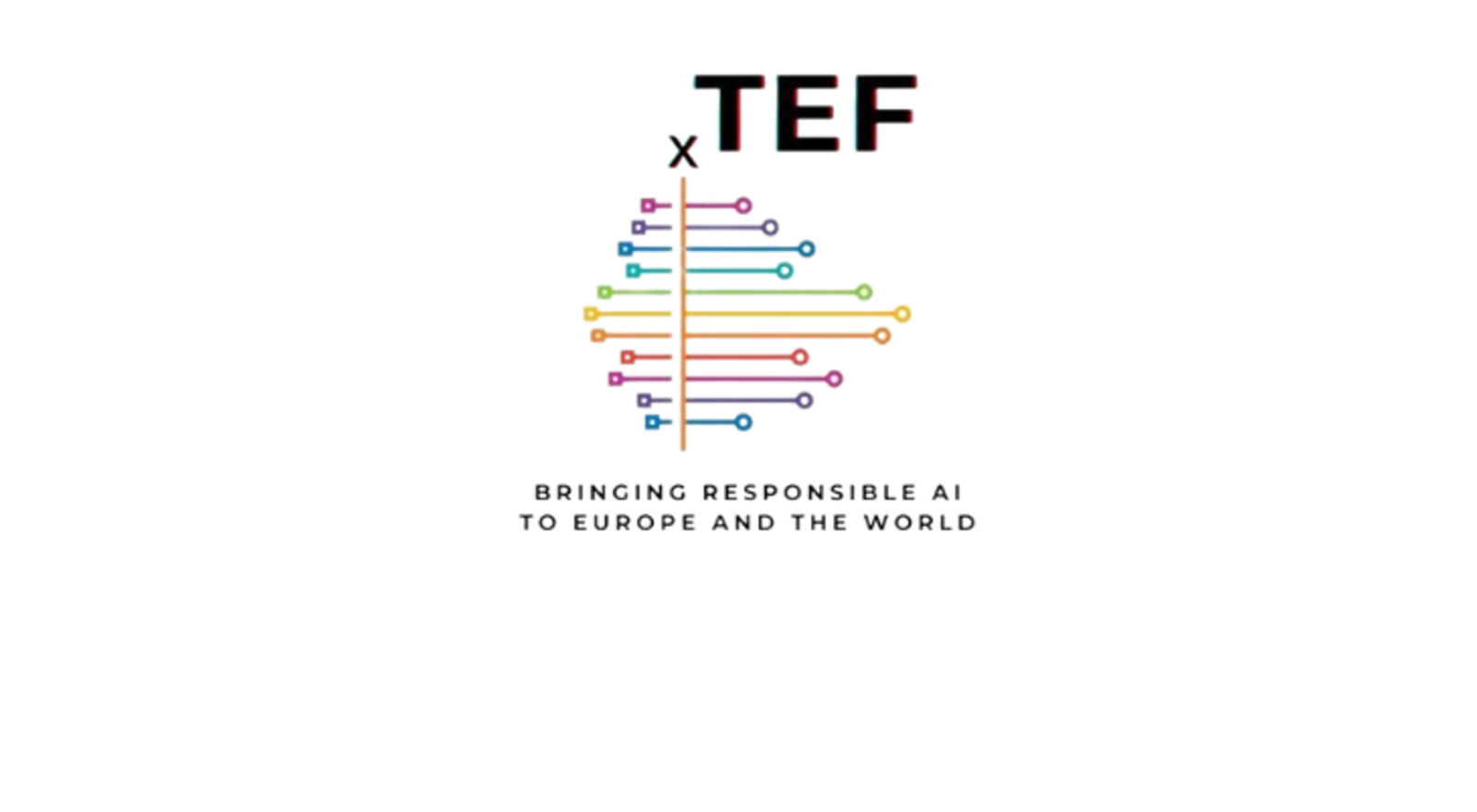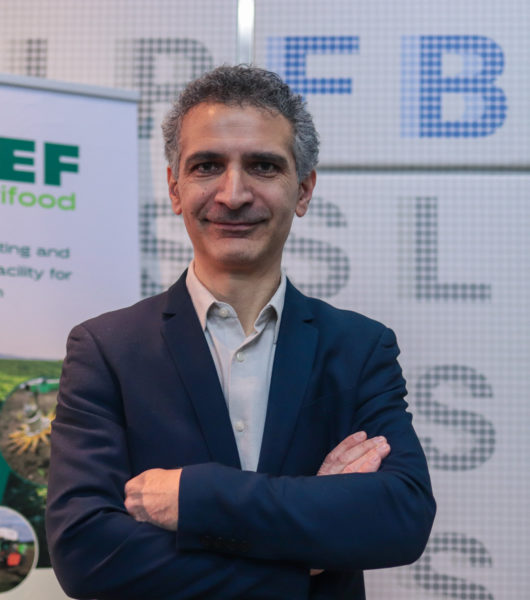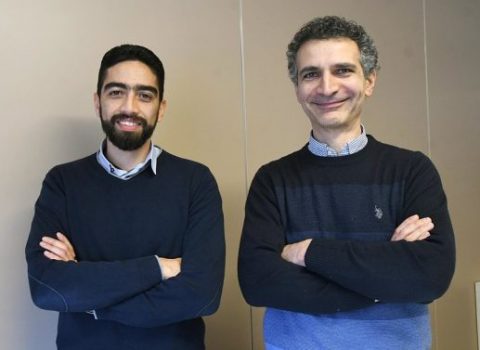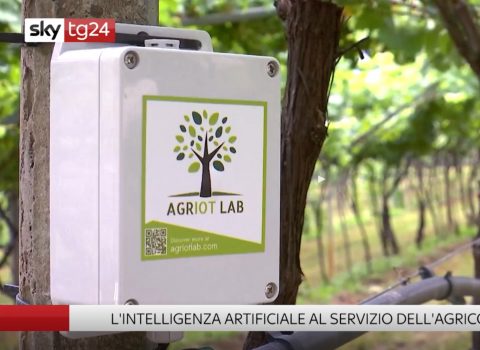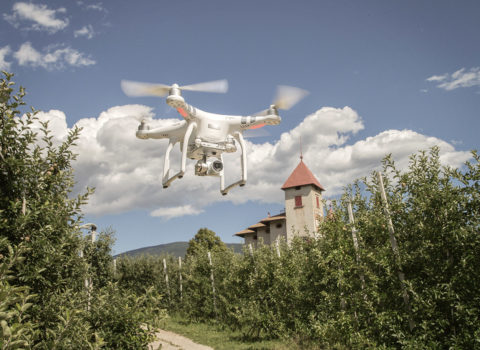
Europe launches four large-scale AI test facilities
The 220m€ investment provides permanent capacity to deliver responsible AI in Europe by testing AI solutions in practice before they hit the market and become a part of healthcare, manufacturing, agrifood and everyday life. One of those is the agrifoodTEF initiative: coordinated by Raffaele Giaffreda (FBK), it deals with the agricultural sector and food production.
COPENHAGEN
Artificial intelligence has entered the public sphere. The term AI is everywhere, and millions of Europeans use the technology every day, often without even realising it.
But who will oversee these new technologies? And how do we know if the AI we are using is working as intended and if it can be trusted?
To make sure that the advent of AI doesn’t conflict with European values and with the 450 million EU citizens, the European Commission and more than half of the Member States have allocated €220 million to establish world class testing and experimental facilities, called TEFs, around Europe.
These TEFs will act as filters and safeguards between technology providers and society to ensure that the EU remains the place where AI excellence thrives – from lab to market – in a trustworthy manner for every citizen in Europe, and beyond.
27 June is the official launch date of the initial four physical and virtual testing facilities across Europe, abbreviated at the launch event simply as xTEF. The launch takes place in Copenhagen, Denmark.
The launch is hosted by one of the four TEFs, CitCom.ai – the TEF for Smart Cities and Communities, which is a collaboration between 33 partners in 11 countries, led by the Technical University of Denmark (DTU), in close collaboration with the Confederation of Danish Industry and TEF DK, a nonprofit industry organisation of TEF providers.
“We have the best European partners who possess great knowledge and experience in working with useful and responsible AI. Through years of collaboration within the EU, we have established the necessary knowledge to match other global regions and have created an ecosystem, where we learn from each other very quickly.” says Martin Brynskov, CitCom.ai lead and coordinator, and Director of Connecting Communities Centre at DTU.
What is a TEF?
TEFs are permanent facilities in the European Union where complex digital technologies can be tested in real world settings, both physically and through simulation: from robots and artificial intelligence to networking protocols and data processing and management.
The easiest way to understand what the TEFs do is to look at them as a sort of safety filter between emerging digital technologies, such as AI, robotics, quantum etc., and European citizens, and beyond.
This filter – the initial four TEFs – acts to test these technologies in real-life settings and so called “living labs” before they reach infrastructure, society, companies, and consumers. The filter turns complex technology with pointy ends into something softer and more society- and human-ready. Into good products basically.
“Providers of AI-driven solutions are given the opportunity to test their products in real environments in order to assess if they meet the customer needs.” says Valentina Ivanova, project coordinator of AI-Matters, the TEF on Manufacturing. “By offering access to testing and experimentation infrastructure across Europe, we aim to accelerate the uptake of these solutions in the market.”
That’s what we would expect from any other sector, but these technologies are new, so we must set up new, and permanent, ways to bring them both safely and swiftly to market.
You could also look at the TEFs as a digital version of the Euro NCAP (the European New Car Assessment Programme) crash test system which tests the safety of vehicles today.
Four testing facilities handle different areas
Right now, the TEFs are divided into four domains, each covering distinct areas: manufacturing, healthcare, agriculture and food, and finally cities and communities.
• The agrifoodTEF deals with the agricultural sector and food production. This could be everything from testing a robotic tractor to using artificial intelligence to optimise crop production.
• The TEF-Health concerns the healthcare sector, from machine learning in medical imaging to complex brain simulations and robots for intervention and rehabilitation. Sensitive health data and medical products are in focus and while TEF-Health helps companies bring their products to the market the highest levels of trustworthiness and compliance with European values and regulations.
• The AI-Matters TEF aims to increase the resilience and flexibility of the European manufacturing sector through the deployment of the latest developments in AI and robotics, and intelligent, autonomous systems for flexible production
• The CitCom.ai TEF is a bit different. With an initial focus on power, mobility and connectivity, its job is to test AI and robotics before they get into places where humans live and move around. This could be self-driving cars, but it could also be telecommunications data retrieval software. Or the robotic tractor being used in a municipal park. CitCom.ai works as a sort of cross-domain filter between technologies, infrastructures, and citizens where they live.
TEF-Health lead and coordinator Professor Petra Ritter from Charité University Medicine Berlin says: “TEF-Health will support SMEs and start-ups to bring Health AI and Robotics Innovations to the market. With 51 partners on board – including notified certification bodies and metrology authorities – TEF-Health strives for novel solutions that speed up the process of turning innovations into trustworthy products that benefit patients.“
The idea is to be able to hit the throttle and the brake pedal optimally at the same time. The TEFs ensure that the EU adopts the best technology solutions going forward so that we end up with good competitive products without sacrificing our societal goals.
“Today we face many challenges related to food security and climate change that no single organisation can face alone. AgrifoodTEF wants to help bridge the gap between the excellent innovation emerging from European technology scientists and agronomy experts and the solutions that bring tangible results to the farmers. Real-life experimentation and validation services are key to facilitate AI and Robotics adoption that delivers more efficient and sustainable food productions,” says Raffaele Giaffreda, agrifoodTEF Coordinator from Fondazione Bruno Kessler.
Other than being a filter to provide testing and approval as a service, the TEFs will also inform policy and provide feedback from the real world.
Regulators will make great use of the testing and experimentation being done at the facilities, and policy makers can look over the shoulder of the TEFs and make more informed decisions about what a safe and proper use of a technology is. This should ensure that they create safe, inclusive, sustainable, and prosperous conditions for EU citizens, and optimal opportunities for European technology providers competing responsibly in a global market.
The four testing facilities will be open for business as early as January 2024.
For more information visit the European Commission website.
You can follow the launch online via this video streaming link
Press contact:
- Hanne Kokkegård | [email protected] | +45 935 11304
- Søren Bjørn-Hansen | [email protected] | +45 2244 8621
